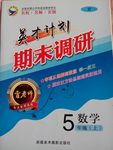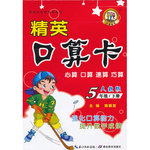题目内容
I ________ the website in 2004, and now over 10,000 people accessed it every day. So I have 5 controllers to manage it.
- A.found
- B.founded
- C.looked for
- D.found out

 英才计划期末调研系列答案
英才计划期末调研系列答案 精英口算卡系列答案
精英口算卡系列答案My mother had been gone from my life for a year when my father took my sister, Kate, and me to visit her. It was about an hour from our home to Camarillo State 1 , but it might as well have been halfway around the world for how 2 we saw each other.
A 3 curtain had fallen when Mom left. Sitting on the grass, Kate and I, eight and five years old, were 4 , subdued (闷闷不乐的) by the unsettling prospect of what 5 Mom would be in. What would she look like? How would she 6 ?
Reports from the doctors 7 she’d been going through some tough times, 8 the first six months, my father said. She cried a lot, and at night, when she 9 Kate and me, the doctors tranquilized (calm sb. using a drug) her.
10 , walking toward us in the distance, we saw her, or 11 we thought was her. But this woman seemed old and unsteady on her feet as she walked along, 12 the arm of a man in a white uniform.
I felt goose bumps springing on my arms. Yes, it was Mom. But her red 13 , once so thick and shiny, was now dry and wild, all the natural waves gone. 14 so attentive and full of life, Mom seemed tired, her eyes sad, searching. Her face 15 me most. Webs of broken blood vessels crisscrossed her skin, providing a map of the violence she had endured (忍受). It would be years before I understood better what had happened to her: She and many other patients had been given, against their 16 , electroshock treatments.
Sitting down on the blanket, Mom 17 us close, first Kate and then me. I had 18 this moment, figured everything would return to normal once I fell into her embrace (怀抱). She would 19 again and take care of me; she would play the piano as she loved to. We would be a 20 again.
1.A.Hospital B.Prison C.School D.Theatre
2.A.far B.seldom C.soon D.often
|
4.A.crazy B.silent C.delighted D.dull
5.A.condition B.form C.dress D.room
6.A.say B.work C.act D.speak
7.A.responded B.reminded C.persuaded D.indicated
8.A.especially B.normally C.typically D.eventually
9.A.laughed at B.cried out for C.looked out for D.thought of
10.A.Fortunately B.However C.Therefore D.Suddenly
11.A.what B.who C.which D.that
12.A.holding B.supporting C.leading D.fastening
13.A.cheeks B.hair C.eyes D.lips
14.A.Before B.Ever C.Once D.Yet
15.A.frightened B.annoyed C.attracted D.disappointed
16.A.aim B.dream C.will D.proposal
17.A.pushed B.dragged C.kissed D.pulled
18.A.asked for B.expected for C.longed for D.looked for
19.A.return B.bake C.live D.entertain
20.A.unity B.victory C.family D.legend
